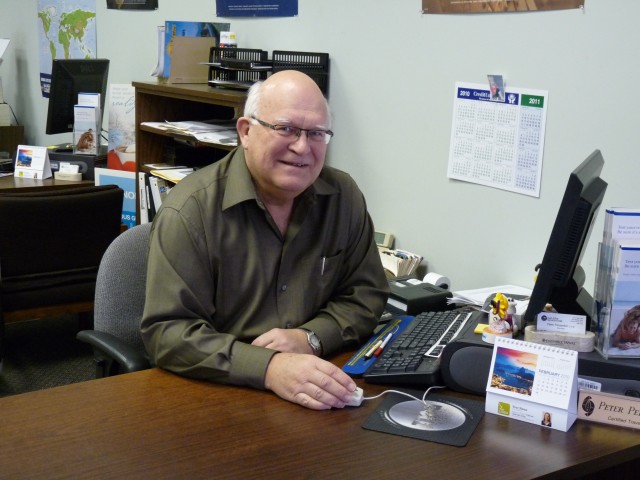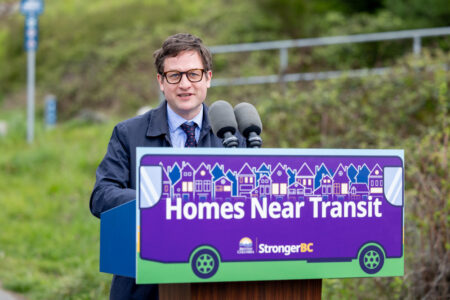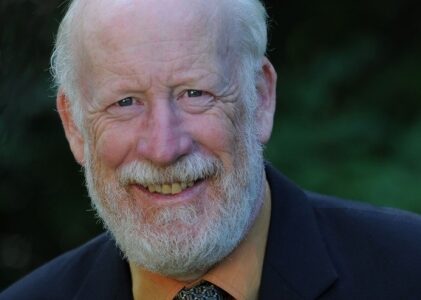Business sectors call on city council to lessen tax burden
Industrial and commercial representatives calling for the revision of city tax formulas made presentations at the Grand Forks City Council meeting last week saying the health of their sectors depends on a change. In the wake of threats of non-payment of taxes by major industries in other communities, this wake-up call cannot be ignored by council, said Mayor Brian Taylor.
Ron Vautour, woods manager for International Forest Products Ltd. (Interfor) made a presentation to council requesting that they consider changes in the mill rates for major industry within the city limits. Vautour acknowledged the good working relationship between council and Interfor, but went on to identify that in doing some research Interfor has found that the mill rates for industry in Grand Forks are the fourth highest of 54 communities reviewed that tax over 10 per cent to industry, and the highest level of all their B.C. interior mills.
Despite paying what Vautour considered premium costs, Interfor does not have sewer services or street lights, and they pay metered water. He argued that council needs to address the tax rates to encourage further investment by the company in the saw mill.
“We’ve had two years of losses along the lines of millions of dollars and it’s been hard on people. The community was impacted as well. If you compare our operation here in Grand Forks with some of the other cities with major industry, roughly three per cent of the taxable value of major industry is what goes into the tax collection. Even though major industry makes up just three per cent of the taxable value in Grand Forks, we’re burdened with 26 per cent of the tax,” said Vautour.
“I can tell you it’s 60 per cent higher than our Castlegar operation and 940 per cent higher than our Adams Lake operation. I think both the city and Interfor want property taxes to be fair, and with fair property taxes you’ll find investment.”
Vautour said that the mill is also in need of upgrades in order for the operation to be viable and competitive in their markets. The current mill equipment is dated and needs to be upgraded, he explained. “We need to make some investment there. That will be good for Interfor and the city in that it will ensure our competitiveness. If we are competitive we’ll be able to operate on an ongoing basis,” said Vautour.
Taylor said that looking only at percentages confuses the issue of taxation. City staff is currently researching the information received by council at the meeting to make comparisons and prepare a report back to council. “When you look at the Interfor situation you’ve got to look at the total level of taxation in some of these other communities. We’re trying to match apples and apples because its difficult to just throw percentages out and have that reflect what is actually going on. In some of these situations they’ve brought up, although the percentages are lower the actual tax level is higher. So we need to take a close look at that,” said Taylor.
Peter Perepolkin, downtown business owner and local resident added a pitch on behalf of the commercial sector to address the balance of taxes between residential, commercial and industrial while questioning council’s decision to use profits from the electrical utility to the benefit of all residents, including those who do not use the utility. During the budget process for 2010, city council made a decision to use the profits from the utility service for general revenue in order to prevent an increase in tax rates. Perepolkin felt that this is a disservice to those users who created the surplus in the first place and gives an unfair tax advantage to the residential users. Perepolkin then called on council to consider their views regarding the commercial sector in general.
“I’d like to be able to walk away from here with a very good feeling that council recognizes the value that the commercial community represents to the entire community. The attitude of the community and the city in general has been that the business folk can afford to pay. And that is definitely something that is totally, totally not true,” said Perepolkin. “The business community is not a healthy, viable, community like anything else. The business community is not healthy and has not been for many years. I’d like you to really grapple with, in some future deliberation, a shift in attitude.”
Gene Robert, city councilor, addressed the decision of previous council to provide an electrical rebate to city utility users explaining that the decision was made in a time when the economy was in a positive situation, especially in light of the new increased costs for electricity. “What we did last year is shifted $50,000 (of taxes) over to residential. So they took a hit last year. So this year we’re pulling a different hand because we don’t have Canpar, and we’re trying to minimize the bruise that’s going to our taxpayers right now. I really felt it would be a disservice to our taxpayers if we raised taxes right now,” said Robert.
Taylor does not expect that these presentations will send council back to the budget table for this year, but anticipates that they will have to consider the allocation of taxes in future years.
“I’m not sure there’s much we can do in terms of this year, we’re down to the wire with our budget,” said Taylor. “But we have recognized, and continue to recognize the burden. I think it will influence the future decisions on taxation. The push of the commercial was to increase residential taxes. I think we are going to have to bite the bullet in future rounds of budgeting.”























